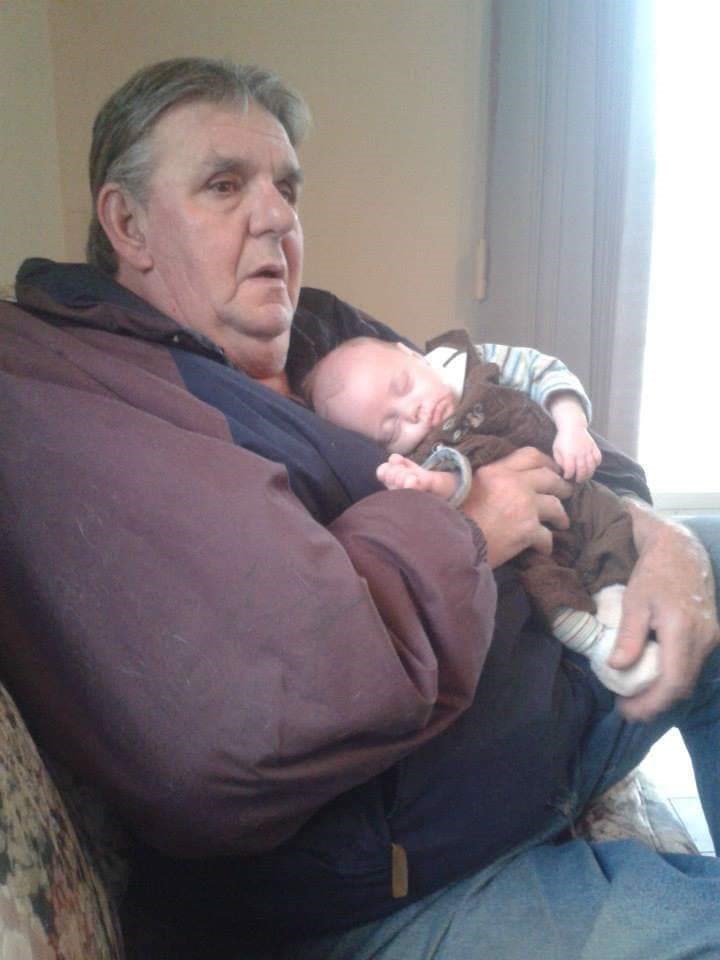Joy and relief have taken over Melanie Fournier’s fear of not being able to give her father a traditional Métis farewell.
Until a couple weeks ago, her father Al Fournier was with his wife at their Midland home.
“About a week ago, he had a heart attack,” said Melanie Fournier talking about her father, who is currently at Royal Victoria Regional Health Centre (RVH) with multiple health issues, including a blocked artery and diabetes.
“Now he's having kidney issues and he's on dialysis, so that's what's pretty much keeping him good.”
Not being her father's power of care, she said she is unable to call the hospital to get information or request a visit. Since he has been admitted to the hospital, Fournier said she has only been allowed to see him once for 15 minutes.
“Last week, we were lucky to go see him,” she Fournier, who also lives in Midland. “We thought he was dying (because) he was on the ventilator.”
And that’s all she wants, said Melanie, “We’re not asking to bring all the grandkids (six) and kids (three) and my mom. All we’re asking for is to see him.”
More so, she said, she wants to see her 76-year-old father given some assurance that his Métis background will be recognized.
"Right now, he’s probably extremely scared by himself,” said Melanie. “These ceremonies help get ready for the next journey. It’s a preparation. It helps (the person) see death is not scary, but a reunion.”
For her and the family, she said the traditional ceremonies help deal with the loss and grief.
“It’s peaceful and beautiful,” she said. “It gives you a better understanding that when someone passes over it’s not the last time we’re going to see them, because we’re pretty much just vessels here travelling this Earth.”
The traditions she is referring to include a drumming ceremony to sing about his life and the good times he shared with his family.
And there are many good qualities to celebrate when it comes to her father, according to Fournier.
“He was a hard-working man,” she said. “He worked at TRW for several years. He is the guy that would give the shirt off his back.”
Fournier said Al is a very caring father and grandfather, who loves and adores his children and grandkids. She said she has no doubt about the strong bond between him and the younger generation, adding she could fondly recall him spending time with the kids and enjoying treats with them.
“Afterwards, when he’s passed,” she said, “we would sing with the drums, a song bringing him toward Creator: helping him cross over.”
The second ceremony is a cedar bath, for which, she said, she would take a cloth and dip it in water that has the four medicines in it, and gently pat him down from head to toe.
Fournier said that both rituals, when modified, take little more 20 minutes to complete, but she had been afraid to bring up the question with hospital authorities.
“I really just think I’m going to get a straight no answer,” she said.
However, the answer was the opposite of what she had imagined.
In an email exchange with MidlandToday, Jane Cocking, manager corporate communications for RVH, said the Barrie hospital’s website indicates that even though visits are currently not permitted, exceptions can be made on compassionate grounds as determined by the care team.
The hospital has an Indigenous patient navigator, who will work with the patient and family, to ensure culturally-appropriate, end-of-life care, said Cocking, who also forwarded an official statement by senior staff.
"Traditional ceremonies for end-of-life patients are still taking place here at the health centre, despite the no visitors policy that was enacted on December 26,” said Liz Ferguson, vice president, patient programs, flow and chief nursing executive.
“When it comes to involvement from family members, we know that loved ones play such an important role in a patient’s journey and we want to ensure they’re able to be with their family members who are palliative. Of course, it’s up to the discretion of the care team, and determined on a case-by-case basis, but I know the care teams work hard to support a patient’s end of life wishes. Family members are asked to contact the patient’s care team for guidance around these exceptions.”
In a last email, Cocking assured MidlandToday that an Indigenous patient navigator representative will be in touch with Fournier to help sort out the details and organize a visit.
In a followup conversation, Fournier said she felt relieved and joyful at the possibility.
